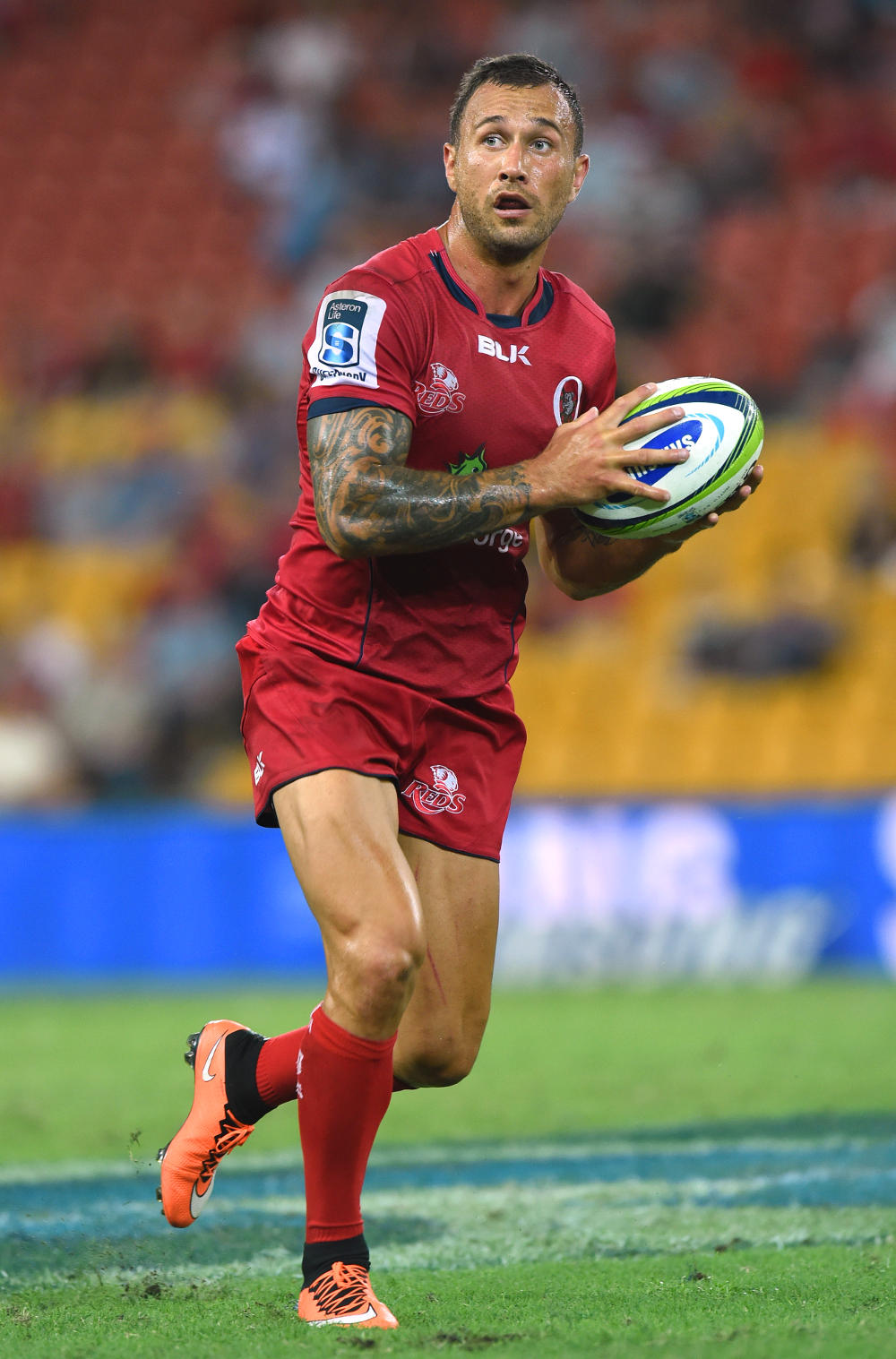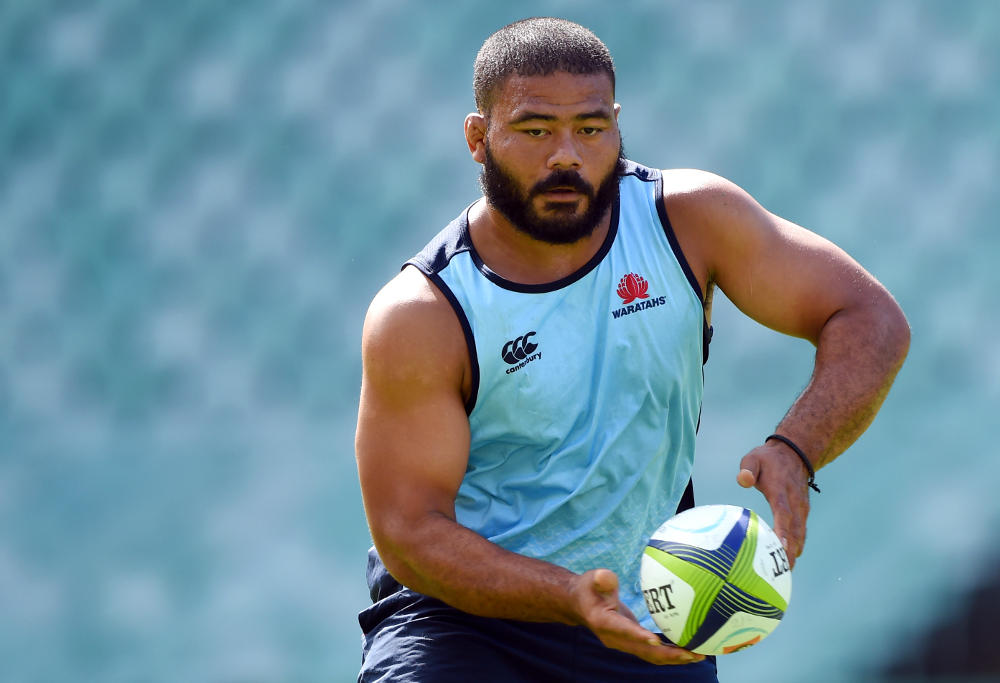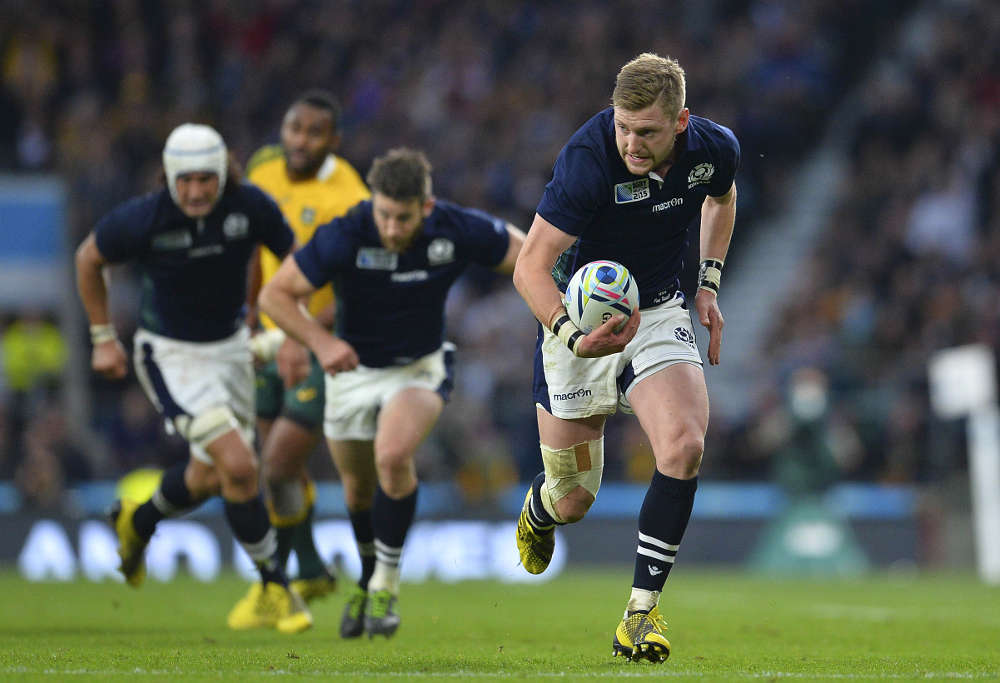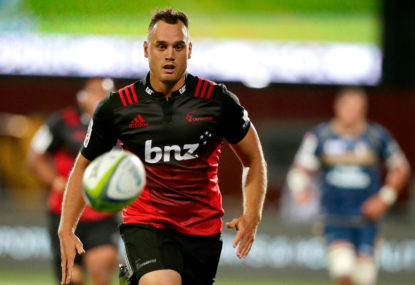There’s no sugar-coating it, this is going to be a long Super Rugby season. Problems with the confusing and illogical competition structure fed immediately into matches that, Dunedin and Cape Town excepted, lacked crowd engagement, colour and intensity.
Not a good sign for Round 1.
Any organisation which invites the Sunwolves into a competition full of many of the best players in the world, then asks them to travel in excess of 90,000 kilometres to matches on less than three weeks’ preparation and be competitive, clearly has operational and strategic planning issues.
This column will get on with enjoying the rugby at face value, because that’s more fun than repeated carping about SANZAAR. But, more than ever, fans keenly await signs of a light at the end of what is an increasingly long and dark tunnel.
After two weeks ago being at Cardiff for a thrilling Wales versus England Six Nations match, AAMI Park in Melbourne for the Rebels versus Blues, with 10,250 fans, was always going to feel a little underwhelming.
At least the 20-plus degrees difference in temperature was some consolation, as was the three-try performance of 19-year-old Rieko Ioane. He helped the Blues get off to a start which belies their recent history, but which loyal fans, desperately trying to keep a lid on things, privately suspect is indicative of happy days ahead.
After a bright opening, the Rebels resembled a weather-beaten team at the end of a tough season, rather than a fresh Round 1 side with everything ahead of them to play for. They will relish their early bye and a chance to reset with their internationals back onto the field.
Is it just me or do the Dunedin students look younger each year? Credit to them for keeping their support up all game, although their Highlanders side didn’t really warrant it. They were far too impatient, pushing passes in contact, and lacking the nous to break down the Chiefs’ defence, despite a wealth of possession.
Not to mention gifting 14 points for fun to the ever playful James Lowe. They will, of course, improve, keeping in mind that whatever work Malakai Fekitoa did on his handling skills over the summer hasn’t yet come to fruition.
For all their reputation as razzle dazzle merchants, the Chiefs’ fortunes this year will be built around Liam Messam leading a steely shotgun defensive line. While the stats show they missed 37 tackles, they made all of the important ones, keeping a clean sheet; not an easy thing to do in Dunedin.
With the ball, it was great to see Damien McKenzie looking sharp and clean of hand, even if he didn’t quite produce one of his killer trademark moments.

The Reds were in a gifting mood as well, Quade Cooper taking only one minute to spill a pass for Robert Du Preez to open the scoring for the Sharks. No doubt eager to impress home fans again, this wasn’t one of Cooper’s best nights, telegraphing his flat, advantage line play to a ready defence, mixed in with ordinary goal-kicking and tentative catching and tackling in his defensive fullback role.
Both coach Nick Styles and Stephen Moore spoke at halftime about wanting a more direct style of play than what Cooper and an equally disappointing Nick Frisby were providing, and when the forwards took things into their own hands, the Reds looked far better for it.
The older brigade, George Smith and Scott Higginbotham, created plenty of interest and some forward punch, and flanker Adam Korczyk, eligible for New Zealand, Australia and Poland, was a revelation; he has a hard body and a thirst for work.
Eventually, one of Cooper’s flat balls paid off and the Reds got their win against a Sharks team that was functional but, Pat Lambie’s boot aside, lacked scoring power.
In all, not one of the great matches. I suspect that officials from both sides will insist that, in future, Gilbert are instructed to provide a rugby ball for play, not a bar of soap. And for everyone climbing into the Rebels for drawing only 10,250 on a Thursday night, I’m not sure 15,000 at Suncorp stacks up too well against that.
Nor the meagre roll up at Allianz Stadium for the Waratahs versus Force on Saturday night. Although with some moisture about feeding the first round rust, perhaps many foresaw what was to come; an error-ridden battle of attrition that, if it were music, would be described as a ‘dirge’.
Waratahs hooker Tolu Latu was one to emerge with credit, and coach Daryl Gibson will be delighted that his new signing at lock made a very promising debut. With a passing resemblance to Will Skelton, this player took the ball up strongly for 70 minutes, scored a try, contested a high ball and ran it back, and, for good measure, even won a line-out!
The Force? It might be fairer to wait to assess them on a dry track, but they do look suspiciously similar to previous non-descript versions.

Earlier, the Hurricanes completed a handy 108-point turnaround on Round 1 from last year, romping in 13 tries against an obviously underprepared Sunwolves. Neil Finn, sorry, Jordie Barrett showed plenty on debut and Julian Savea looks a deal trimmer this season.
To be fair to the Sunwolves, they never dropped their bundle and were inventive and lively in attack. But yes, you could argue that they’ve got a few work-ons in defence.
In Christchurch, Stephen Larkham got his halftime message right, to retain possession; as a result, a nice pass by Sam Carter sent Rory Arnold over for a try that had them right in the contest. But too many times, the ball was aimlessly kicked away; Tevita Kuridrani a most disappointing culprit on a quick counter-attack.
For the Crusaders, Israel Dagg’s 100th Super Rugby match was full of youthful energy, the sign of a man content with a freshly new, heftily upgraded contract.
The best match of the round came in Cape Town in front of an encouragingly large crowd who were animated and engaged throughout. It is as if Stormers’ coach Robbie Fleck spent the summer hanging out with Johan Ackermann, his side playing on at every opportunity, keeping the pace of the match high.
I liked halfback Jano Vermaak’s game; just like Faf du Plessis for the Lions, this type of game demands a livewire half with a quick pass and a fully charged battery.
Despite the 24-37 scoreline, the Bulls still have plenty to offer this competition, showing equal desire to try to move the ball into space. Full credit to both sides. Less credit to the officials who allowed both sides to take the field kitted out in blue.
This match threw up the winner of this week’s ‘rabbit in the headlights’ award, Japanese assistant referee Shuhei Kobo who, it might be said, ‘lacked authority’ running the touchline. Things could get interesting if he’s on the whistle when events get tense in a future match.
In the two matches I missed, the Lions had a far more uncomfortable win over the Lood-less Cheetahs than most predicted, 28-25, and the Jaguares a more predictable 39-26 win over the Kings.
Thank god then for the Six Nations, continuing to provide excellent, competitive rugby; Scotland now within sight of a rare Triple Crown if they can halt England’s run next weekend.
Down 9-13 at halftime at Murrayfield, Vern Cotter’s men took advantage of Wales once again running out of ideas (and Rhys Webb’s left boot grazing the touchline in the act of scoring), to post 20 unanswered points in the second half for a rousing 29-13 victory.

This was a match full of willing, un-Sunwolves like defence, contrasted by three superbly taken tries, all by the wingers. Something for everyone.
In front of Warren Gatland, flyhalf Finn Russell staked a strong claim for a Lions berth, kicking truly and managing the game coolly. The Scots may not yet have the 23-man depth to beat England, but I’ve got no doubt that they believe they do and that’s half the battle.
A second cracking match followed. Ireland and France were both full of positive intent despite wet conditions in Dublin. Johnny Sexton clearly enjoyed his return but it was halves partner Conor Murray who was the stand-out, scoring a trademark try off quick, front-foot ball from a scrum and thrust by Robbie Henshaw.
France contributed plenty to the game in defence and attack, only some poor discipline under pressure sealing their fate in the final stages. Earlier, at the end of the third quarter, one extended phase of attack by Ireland and counter-attack by France was as thrilling as anything in recent memory.
Rugby fans will have their own views on the use by players of non-performance-enhancing drugs; ‘recreational’, ‘party’, ‘illegal’ among the descriptors thrown around.
In my humble view, James O’Connor is as entitled as the next person to get full of ink and blow, if that’s how he chooses to life his life.
But he’s less entitled to waste the time of French and Australian rugby clubs and fans by pretending he’s something he isn’t. On return to Australia earlier this month for the Brisbane Tens, O’Connor was clearly putting out feelers for next season when he said about his future, saying “I’m talking to clubs in Toulon, Japan and Australia, et cetera. There is that hunger, obviously, to play for the Wallabies and that’s always been there.”
No it hasn’t James. Those are just words. Truly hungry people are judged by their actions. And those Australian clubs you’re talking to? Not anymore, you’re not.
As for being out on the tear in Paris with Ali Williams? Talk about the blind leading the blind.
































































































